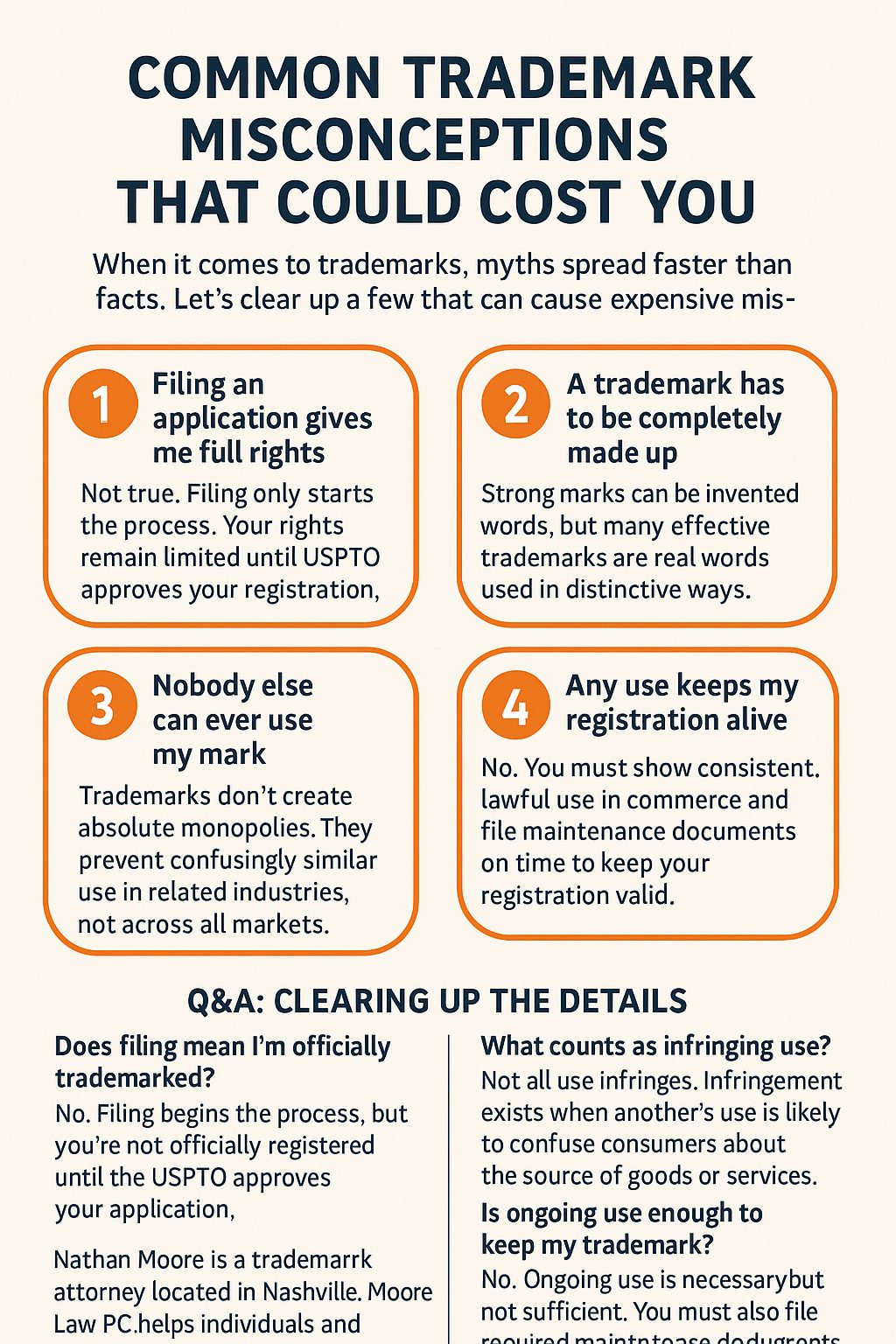Your cart is currently empty!

Clearing Up Common Trademark Misconceptions
Trademarks protect reputation and reduce confusion. But myths about what trademarks do—and do not do—often lead to costly mistakes. Here is a fast, plain-English reset so you can file and maintain your rights with confidence.
Myth 1: Filing an application gives me full rights
False. Filing starts the process, but you are not federally registered until the USPTO approves your application. Until then, your protection is limited.
Myth 2: A trademark must be an invented word
No. Invented words can be strong, but real words used in distinctive or arbitrary ways can be strong too. What matters is distinctiveness, not novelty alone.
Myth 3: A trademark blocks everyone from using the word
It does not. Trademarks stop confusingly similar use in related goods or services. Unrelated industries may coexist if there is no likely confusion.
Myth 4: Any use keeps my registration alive
Use must be lawful and continuous, and you must file required maintenance (Sections 8/9) on time. Miss those filings and your registration can be cancelled.
Quick-Take Q&A
Does filing mean I am officially trademarked?
No. Filing begins examination. You are officially registered only after the USPTO approves and issues the registration.
Do I need to invent a word for a strong mark?
Not required. Arbitrary or suggestive uses of real words can be strong. Descriptive terms face hurdles unless they gain distinctiveness.
What counts as infringing use?
Use that is likely to confuse consumers about the source, sponsorship, or affiliation of goods or services.
Is ongoing use enough to keep my registration?
You need both continued, lawful use and timely maintenance filings (Sections 8 and 9). Missing deadlines risks cancellation.
Conclusion
Trademark law is full of nuance, and relying on myths can leave your business exposed. A strong trademark strategy requires more than assumptions—it takes accurate knowledge, clear planning, and careful execution. By separating fact from fiction, you protect your brand, minimize disputes, and position yourself for long-term growth. Don’t leave your intellectual property to chance—take proactive steps to secure it the right way from the start.
Nathan Moore is a trademark attorney located in Nashville. Moore Law PC helping individuals and businesses successfully apply for and register trademarks nationwide.
